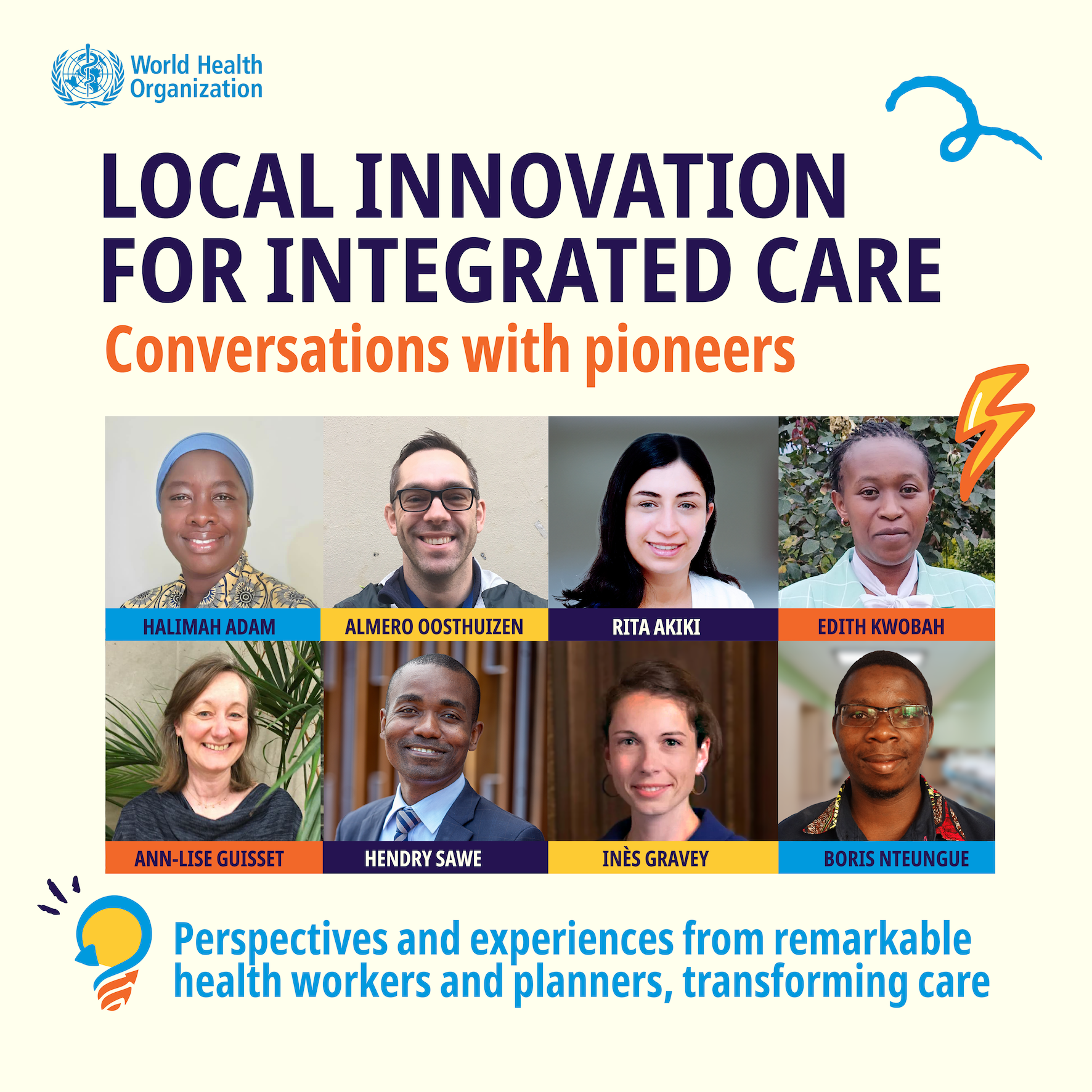
LINC Episodes
Episode 1
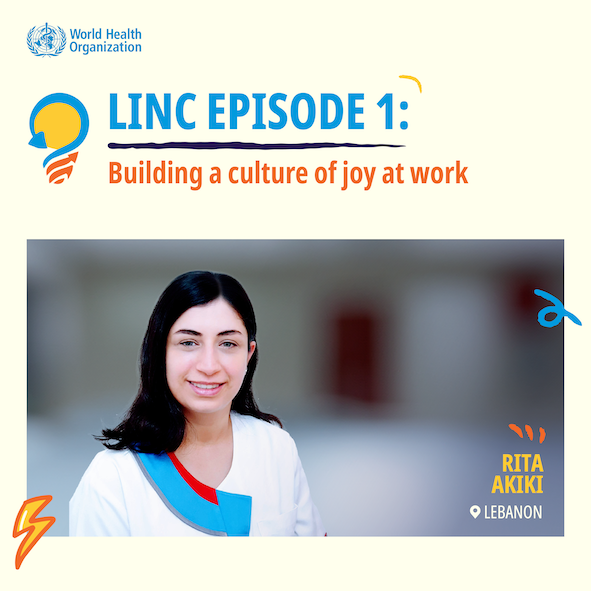
An inspiring story of Rita Akiki, a nurse in Lebanon, who redefined innovation in her hospital by fostering a culture of joy, collaboration, and recognition. She empowered her team to see themselves as change-makers, creating an environment where staff could freely share ideas, feel valued, and embrace their roles with pride, despite ongoing challenges.
Rita is a Registered Nurse and the Nursing Director at Aboujaoudé Hospital Lebanon. She has more than twenty years of experience in the field of clinical nursing, hospital management, nurses’ education, and training. Rita has a passion for empowering nurses and she was the winner of the Nursing Now Challenge Global Solution in 2021 for her work on supporting early career nurses in their leadership development journey. Rita has launched many initiatives to improve nurses’ morale and job satisfaction including a multidisciplinary heart failure education clinic.Episode 2
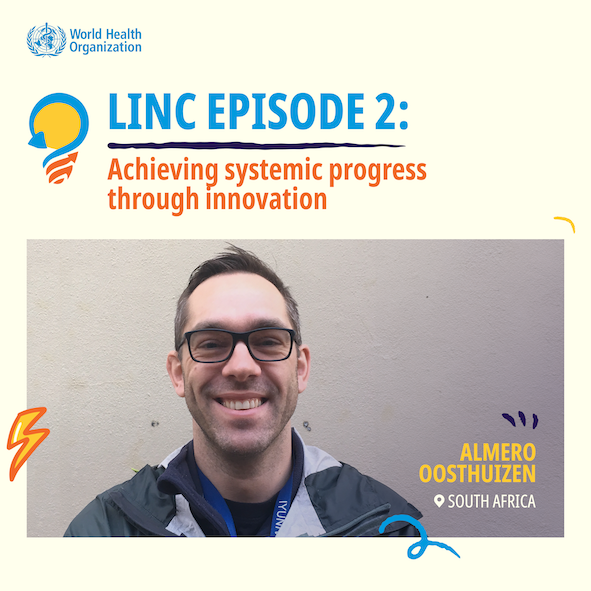
Almero Oosthuizen, an emergency medicine physician, sees health workers as valuable assests of the South African health system. In this discussion, he encourages health workers to actively engage in systems innovation and highlights three key principles - compassion, adaptability, and integration - as the keys to creating impactful and lasting change.
Almero is an Emergency Medicine Physician and the Clinical Lead for Innovation and Improvement at the Directorate of Clinical Service Improvement in Cape Town, South Africa. He has experience working at various levels of the health system in both South Africa and the United Kingdom, and has also been involved in education and service design projects in Zambia and Tanzania. Almero is dedicated to empowering public-sector teams to build and scale solutions that enhance access to and quality of care for millions.Episode 3
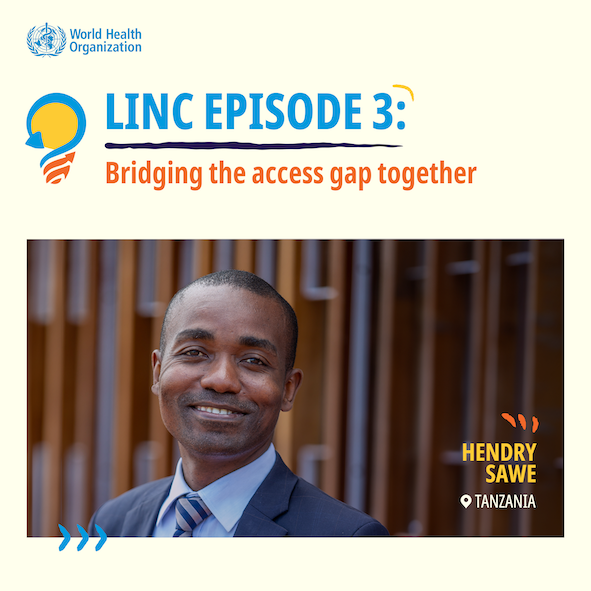
Hendry Sawe shares the journey of establishing emergency care in Tanzania. Through patience, collaboration, and innovation, they’ve managed to close critical gaps in access to emergency services—bridging communities with life-saving care. Hendry reveals how humility, transparency, and sustained communication have been the cornerstones of this national initiative.
Hendry is the Executive Director of the Abbott Fund Tanzania, responsible for managing the organization’s philanthropic engagement in the country. He is also an Emergency Medicine physician and was part of the first class of Emergency Medicine Residents to graduate in 2013 from Muhimbili University of Health and Allied Sciences. Hendry has been a pioneer in Emergency Medicine training and services in Tanzania, serving in various roles throughout his career.
Episode 4
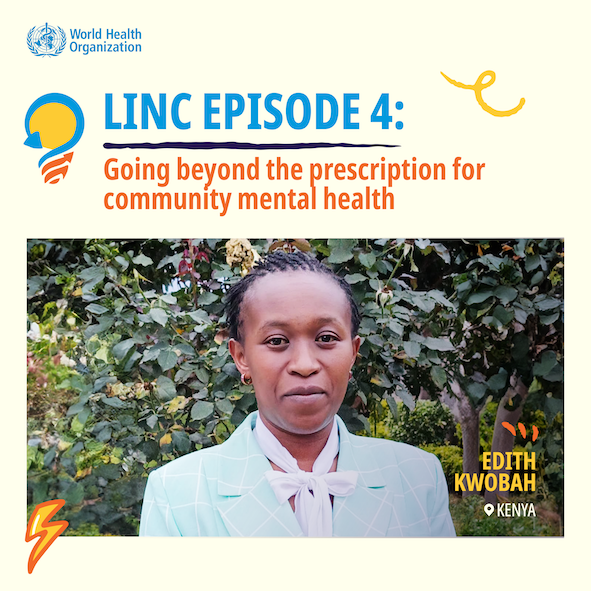
Edith Kwobah, a Kenyan psychiatrist, discusses how she was able to improve mental health services by going beyond the hospital, dreaming big, and building strong support networks with the Kenyan Ministry of Health. She encourages the evaluation and documentation of innovations such that they can serve as a model for others to learn from and inspire change on a national scale.
Edith served as the Head of Mental Health at Moi Teaching and Referral Hospital in Eldoret, Kenya. A compassionate psychiatrist, she was dedicated to improving access to care and treatment for Kenyans affected by mental health disorders. She developed several new initiatives and services to strengthen the connections between the hospital and community mental health services, including community education and outreach. Edith passed away in 2024 after a battle with cancer.
Episode 5
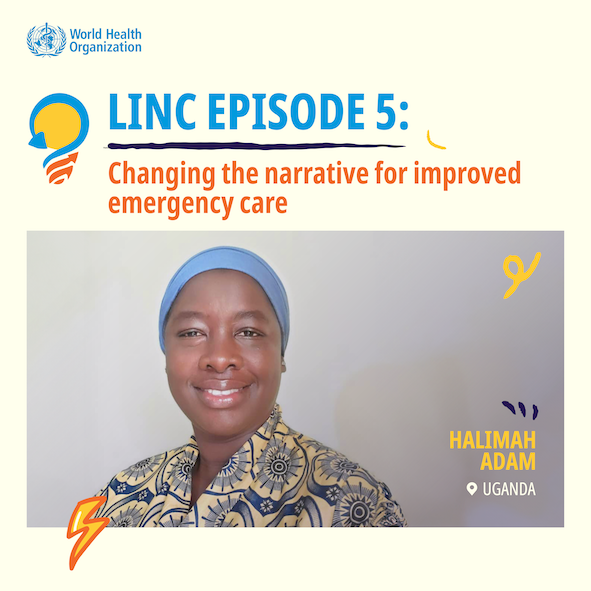
Halimah Adam sheds light on the crucial role of nurse leadership in enhancing emergency services. Through strong teamwork and effective communication, she and her team has transformed their Emergency Unit into a model of excellence in Uganda, demonstrating the power of a positive attitude and best practices in delivering high-quality care.
Halima is a nursing officer at Mudende Regional Referral Hospital in Uganda, where she coordinates emergency services within the region. For the past ten years, she has led efforts to improve the quality of emergency care. Additionally, Halima collaborates with various organizations and hospitals to provide emergency care training and mentorship.
Episode 6
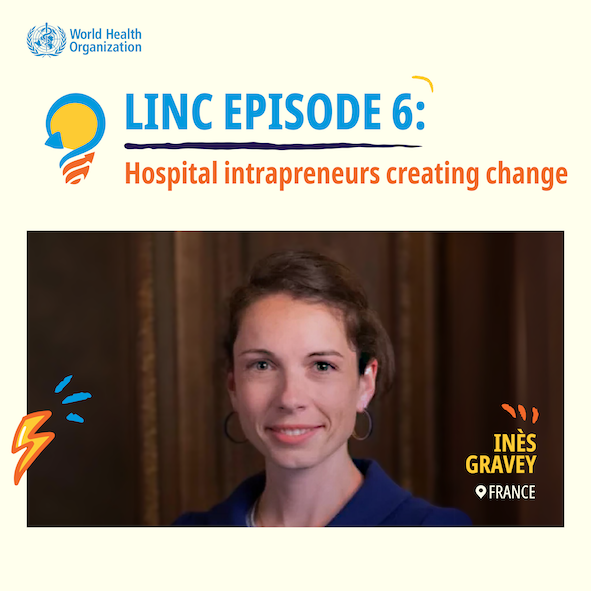
Inés Gravey shares her experiences in introducing employee-driven innovation in Parisian hospitals. By embracing human-centered design, she proved how important hospital workers can be in solving care challenges and also engaging in innovation, motivating, and retaining staff. Learn how Inés overcame skepticism from those around her and cultivated a positive culture of intrapreneurship.
Inès is the Director of Human Resources at Paris University Hospitals (AP-HP) and a specialist trainer in Innovation and Design for Health. Her passion for innovation, change management, and collaborative approaches has driven her to establish an innovation lab within AP-HP's 'Hospital at Home' program. Ines is dedicated to empowering teams to tackle complex challenges through human-centered innovation.
Bonus Episode
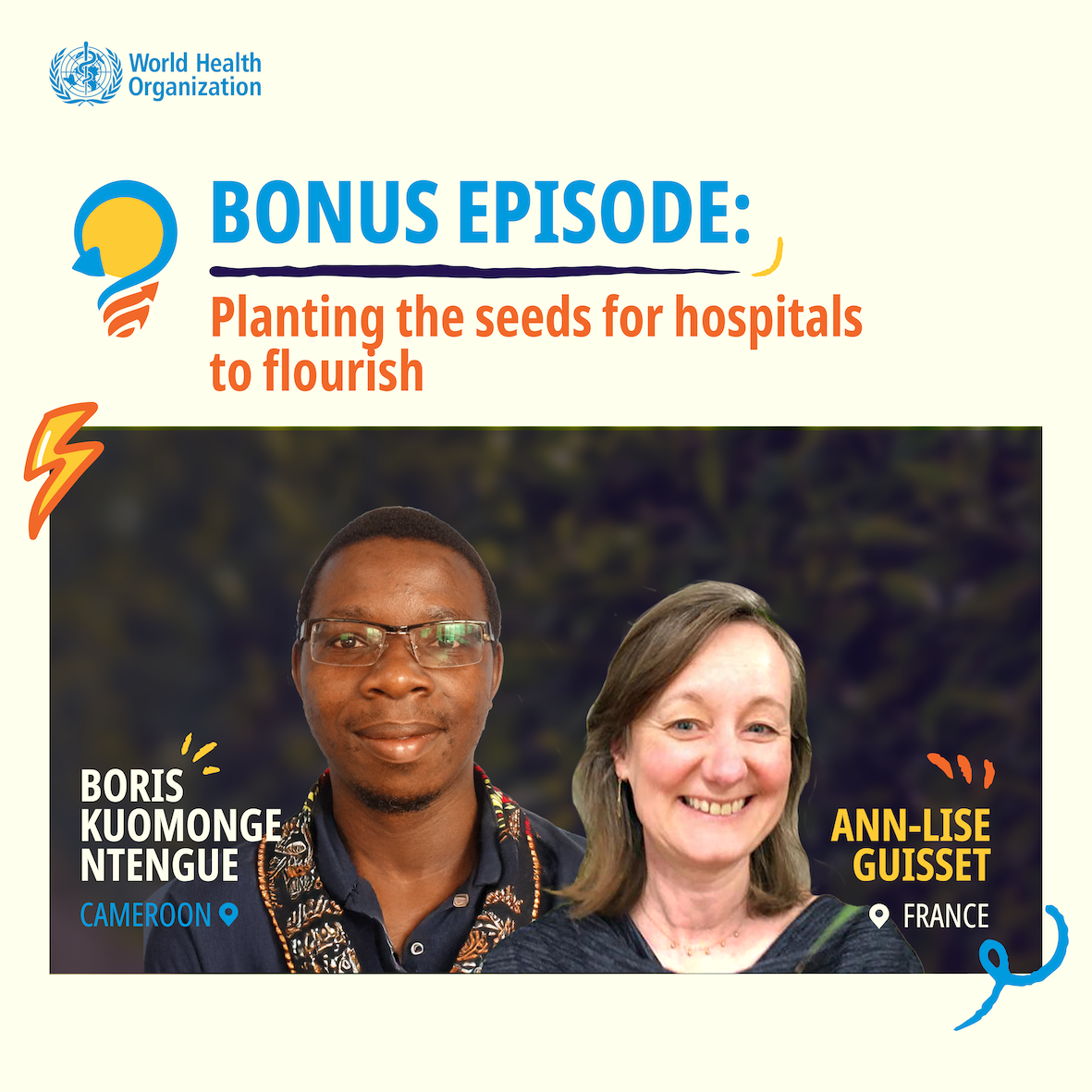
In this conversation, Ann-Lise Guisset and Boris Kouomogne Nteungue share their thoughts on how innovation capacity can be built in hospitals.
Ann-Lise, team lead in the Integrative Health Services department at the World Health Organization in Geneva, was the catalyst behind the Hospital Solution Hubs—an innovative collaboration between WHO, Ministries of Health, and hospitals. These hubs helped empower frontline health workers with the tools and skills to tackle daily challenges, transforming hospitals into spaces where both patients and healthcare workers can thrive.
Boris Kouomogne Nteungue works for the WHO Country Office in Cameroon. Together with his team, he has played a key role in implementing Hospital Solution Hubs and driving change.

